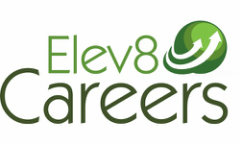
Is a college interview different from any other interview? In short, yes. It is more of a discussion than an interrogation. You need to make sure the course is right for you and they need to make sure you are right for the course. It's slightly less formal than a job interview, but this is great practice for the real thing, so you need to impress.
HOW CAN YOU PREPARE?
Prepare a question, is there anything you want to know about the course? The canteen? The college day? Enrichment programmes? Show your enthusiasm for college life by asking a question about it.
Rehearse any potential question you might get asked. Common questions for college interviews will include:
- What do you know about the subject you are applying to study?
- Why are you interested in this subject?
- Why do you want to attend this college in particular?
- What are your short-term and long-term goals?
- What do you like to do in your spare time?
- Have you ever done any volunteering?
- What makes you more suitable for the course than another applicant with the same grades?
- What do you think will be your biggest challenge?
Be on time. Set off in plenty of time, to arrive at least 10 minutes before the interview time. This gives you time before the interview to relax, gather your thoughts and gives you a little extra time for any unforeseen minor delays on the way.
Dress smart - you want to feel good and make a good impression.
At the Interview
- Smile! Always treat your interviewer with courtesy and manners. Make eye contact, it shows you’re listening. If more than one person is interviewing you, make sure you are looking at the person asking that question. Don’t fidget or slouch, your bod language says a lot about you.
- The Interviewer will want you to talk about yourself, your career ideas, your interests and hobbies, what you are doing currently e.g. school subjects, current employment, past employment or work experience.
- Listen to the interview questions carefully. If you don’t understand a question, ask for it to be repeated. Try to avoid yes and no answers – give as much information as you can.
- Act naturally, don’t exaggerate, answer questions honestly and frankly. You may need to talk about your weaknesses. If this happens, state your weakness and follow up with how you are working to overcome this weakness. For example 'I found it hard to focus on my homework in my room, so now I go to the library to do homework'.
- At the end of the interview thank the interviewer for their time.
Be yourself. You have worked hard to get this to this stage. Relax and good luck!

 RSS Feed
RSS Feed